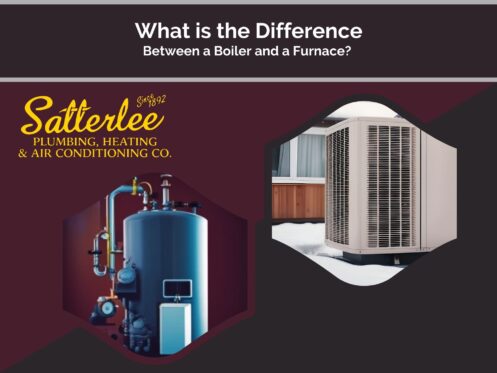When it comes to heating your home, there are several options available. Two of the most common heating systems are boilers and furnaces. While both of them play a crucial role in keeping your home warm during the colder months, there are several key differences between them. Understanding these differences can help you make an informed decision when it comes to choosing the right heating system for your home. So what is the differences between a boiler and a furnace?
Generating Heat
One of the primary differences between boilers and furnaces is how they generate heat. A furnace heats the air, while a boiler heats water. A furnace operates by burning fuel, such as oil, natural gas, or propane, to produce heat. The heat is then distributed throughout the home via a ductwork system. On the other hand, a boiler heats water, which then circulates through pipes and radiators to heat the home. The hot water can also be useful for domestic hot water needs.
Distributing Heat
Another significant difference is how boilers and furnaces distribute heat. As mentioned earlier, furnaces use a ductwork system to distribute heated air throughout the home. This can sometimes lead to inconsistent temperatures as the heat may not have even distribution throughout all areas of the house. Additionally, dust and allergens in the air can be blown around, potentially causing discomfort for those with respiratory issues.
Boilers, on the other hand, provide radiant heat, which is known for its even distribution. The heated water flows through pipes and radiators or, in some cases, radiant floor heating systems. This results in a more consistent and comfortable temperature throughout the whole house. Additionally, since boilers do not rely on blowing air around, they do not distribute dust or allergens, making them a better option for those with respiratory sensitivities. However, it’s important to remember that homeowners with boilers will need a separate system (without ductwork) for air conditioning.
Efficiency
The third important distinction is the efficiency of boilers versus furnaces. In general, boilers are more efficient than furnaces. This is because boilers transfer heat directly to the water, avoiding heat loss through the ducts. Moreover, boilers can also be equipped with additional components such as condensing heat exchangers to extract even more heat from the exhaust gasses, increasing their efficiency.
Furnaces, while still efficient, can experience some heat loss through the ductwork system. Additionally, without proper system maintenance or if the ducts are leaky, further efficiency losses can occur. However, it is worth noting that advancements in furnace technology, such as high-efficiency models and zoning systems, have improved their efficiency levels in recent years.
Maintenance and Lifespan
Maintenance and lifespan are also essential factors to consider when choosing between a boiler and a furnace. Boilers generally require less maintenance compared to furnaces. This is because they have fewer moving parts, making them less prone to mechanical failures. Additionally, water boilers do not have filters that need frequent replacement, as is the case with furnaces. However, boilers require regular servicing and inspection to ensure optimal performance and safety.
In terms of lifespan, boilers tend to have a longer life expectancy than furnaces. While a well-maintained furnace can last for around 15 to 20 years, a properly maintained boiler can last up to 30 years. Higher quality components and durable construction contribute to the longer lifespan of boilers. A long lifespan, better heating efficiency, and tricky installation measures, all add up to a higher initial cost as well.
Final Thoughts on the Differences Between a Boiler and a Furnace
Overall, while boilers and furnaces both serve the purpose of heating your home, there are several key differences between the two. Ultimately, the choice between a boiler and a furnace depends on your specific heating needs, home layout, and personal preferences. Reach out to our experienced HVAC technicians at Satterlee today to learn more.


